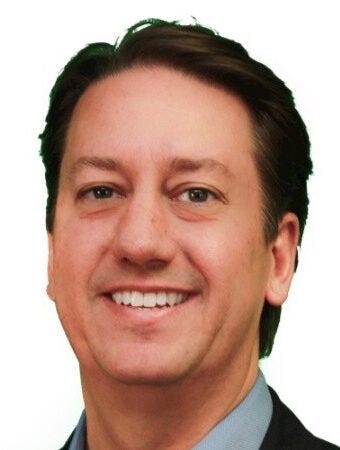Telarus Vets Start New TSD Targeting Enterprise-Focused Partners
The Texas-based has signed up its sister company, Caliber Solutions, and is gunning for an elite group of agents and suppliers.

XCV Partners has emerged as a technology solution distributor (TSD) targeting an elite group of enterprise-selling partners.
The Texas-based TSD emerged this week under the leadership of Doug Tolley and Roger Blohm, two former leaders at VXsuite and Telarus, with a boutique model of sorts. Tolley and Blohm tell Channel Futures that they are not looking to replace the national TSDs — which include Telarus, Avant, Intelisys and Sandler Partners. Instead, they say they want to work with a select group of mature agents and suppliers who want to engage in lead sharing and a different form of MDF.

XCV Partners’ Doug Tolley
“We don’t think this is like a revolution where the TSDs have done a bad job; this is not a knock on them,” Tolley told Channel Futures. “We think there’s a certain group of partners who have evolved beyond what they can provide. For us, this is an evolution. This is the next logical step in the evolution of the growth of the TSDs at the top of the scale. Not in the masses, but at the top of the scale.”
Moreover, the company is offering higher pass-through of vendor commissions to partners, mitigating what XCV Partners leaders call a “TSD tax.” That taxation occurs when agents sell a deal through a TSD yet don’t leverage any of its resources. XCV Partners is targeting partner firms that have built up their organizations to the point where they employ their own sales engineers.
The company is offering four levels of commission split, ranging from 85/15% to 95/5%. The pass-through level is tied to the number of sales partners run through XCV (which is the Roman numeral for 95), with the top quadrant taking on equity in the company.

XCV Partners’ Roger Blohm
“You have an 80-20 pass-through as a standard process. Then, TSDs layer on all these other things: engineering support, account management support, supplier management, concierge-level service, solution sales, etc. Ultimately, the high-performing agents who don’t need all that extra stuff end up paying for it, whether they use it or not. We’re targeting high-performing, superstar, enterprise-selling agents who don’t want all of the fluff and want two things: excellent supplier relationships and the highest possible pass-through,” said Tolley, XCV’s general manager and vice president of channels.
XCV Partners exists under Caliber Solutions Holdings, a family of businesses that contains the technology advisor firm Caliber Solutions and technology procurement company Novar. Caliber, led by TA 101’er Chris Gamble, has signed on. The agency’s success in the enterprise space helped it earn recognition on the Inc. 5000. But in the wake of an acquisition of one of Caliber’s main TSD partners, the partner was mulling whether it should sign direct contracts with its key suppliers.
For Gamble and Caliber, XCV Partners has emerged as the alternative. XCV said it has signed agreements with 10 suppliers, which it lists on its website.
Lumen confirmed to Channel Futures on Friday that it has signed an agreement with XCV. Another company on the list, an aggregator, said it is in the process of signing an agreement, but has not officially signed a contract yet. In one case, XCV leaders said that had formed a verbal agreement with a vendor to transfer a contract Caliber held into XCV’s name.
However, Tolley said they see 30 or 40 as the ceiling for how many vendors XCV intends to sign.
(Editor’s Note: Channel Futures originally listed eSentire as one of the signed suppliers, as XCV lists it on its website. After the article was published, a spokesperson for eSentire told Channel Futures that eSentire has not signed an agreement with XCV.)
“We’re chasing the suppliers our partners already tell us they need. Caliber says, ‘Hey, we’ve got to deal right now with so-and-so. We need to track those guys down.’ There’s a little bit of that,” Tolley said. “But even more importantly, we’ve got our …
… seven lanes of technology that we’ve outlined. And we’re being strategic. We want two or three outstanding suppliers in each of those lanes. So there’s a little bit of a balancing act.”
What happens if an agent has established a close relationship with a vendor outside of XCV’s portfolio, or for some other reason needs to source elsewhere? That’s completely understandable, Tolley said.
“The reality is, nobody’s 100% loyal, and we don’t expect that. They will make the right choices for whatever reason they might have,” he told Channel Futures. “I think it’ll be on an opportunity-by-opportunity basis, and we’ll earn their loyalty by them giving us a try and seeing how it works.”
The supplier management component will be a crucial element for XCV Partners to execute on, as many partners view the size of the national TSDs as a protection (sometimes called “herd immunity“) against vendors shutting off residual commissions. XCV in conversations with potential agents will need to prove its ability to perform on the risk-management element, compared to an incumbent that has stacked up years of residuals over the years.
Tolley said that in lieu of investing in sales engineers in the way national TSDs have, XCV Partners will maintain a relatively lean organization that focuses on keeping supplier relationships and the associated revenue in place.
“A TSD’s primary job is to pay accurately on time. So we’re going to invest in making sure that we pay accurately and that we pay on time. That’s one place we’re absolutely going to invest. And the other place is managing the right suppliers coming into our ecosystem. But this will not be a large organization when it’s all built out. It might be 15 people,” he said.
He added that vendors tend to allocate their top sales-engineering talent to work with partners for enterprise deals.
“When you bring a deal of a certain size, you already get their best engineers, implementation and individuals. For the enterprise sales, the suppliers already have the engineers that are the best of the best,” he said.
MDF vs. ‘CEF’
Tolley, who most recently led revenue efforts at health care software provider Dedalus, said the vendors in XCV’s portfolio will have matured in their market development fund (MDF) strategy. These suppliers likely have been playing in the TSD space for multiple years and have moved past the point where they are trying to establish their brand to potential partners.
Tolley and Blohm said XCV will focus on customer-facing events, rather than partner-facing. Tolley described it as the difference between market development funds (MDF) and channel education funds (CEF).
While many vendors see the value of hosting events that educate and train partners on how to sell their products, Blohm said XVC wants to move beyond partner acquisition.
“High-performing suppliers have a different experience. I need to generate a lead of somebody ready to buy this product or this technology. We believe that’s the missing part. The education seems to be adequate. New entrants to the market can get exposure. People that you’ve never heard of get heard of,” said Blohm, who serves as chief revenue officer for XCV Partners. “But the people that turn that into performable revenue narrows and narrows and narrows. We believe that’s where the gap is: at the top tier when you’ve got mature technology ready to be bought and used by consumers, and tying the investment in those MDF doors directly to that large deal or that larger opportunity.”
And partners are looking for a similar focus, Tolley said.
“They want smaller, targeted events that connect good suppliers and user customers. And the end-user portion of this is largely absent in lunch-and-learn and wine-tasting events. And for the TSDs and TSBs, their only measurement for success of the event seems to be, …
… ‘Was the room full?'” he said.
Tolley and Blohm said they will make MDF allocation more transparent, with the partners who contribute the most getting a proportionate amount of funding.
“It’s hard to draw a straight line between an MDF dollar a supplier gives to a TSD, and an end-user customer deal, and part of that is because it all goes into one big bucket. Part of it is because there’s a pay-to-play component where you’ve got to pay X amount to have the privilege of picking which events you want to attend,” Tolley said.
The MDF conversation, particular the discussion about MDF that goes from a supplier to a TSD, is a perennially inflammatory topic in the channel. And different parties, including the national TSDs, have been working on ways to link vendor MDF to the customer-facing partner.
XCV leaders said the company will feature lead-generation support from partners. When asked about the sources of those leads, they pointed to Novar, which helps businesses find procurement alternatives to VARs, as a system that contains leads. They also pointed to vendors in the XCV portfolio as parties that will be bringing leads to the table. Moreover, Tolley said they are trying to recruit technology advisors with unique skill sets who will cross-pollinate with one another.
Comparison to Other Models
Following two years of consolidation in the TSD space, 2023 has seen several players present themselves as alternatives to the largest TSDs. Many of them have been around for years but are openly styling themselves as anti-private-equity players. Perhaps most notably, Sandler Partners has gained business in 2023 through the promise of high pass-through for partners that don’t leverage its resources. And in April, Clarus/TDM evoked shades of KeaneTel by offering 100% pass-through a $1,000 per month subscription. And still, newer parties are planning to go live in the upcoming months.
Channel Futures asked Blohm and Tolley about their differentiation. They said XCV Partners is different from a TSD that promises high pass-through on transactional business because of its model for transparent and customer-facing MDF, as well as lead generation. They said they are different from a subscription model because they aren’t looking to drastically scale the number of agents working with them.
“At some point, you must constantly have new subscribers to grow that revenue model. And we’re not interested in having thousands of subscribers,” Tolley said. “We want a hard-working, super high-performing group of 30 or 40 who want to work together to knock down the world’s largest companies.”
Tolley was chief revenue officer and senior vice president of sales at Telarus from 2015-2017. Blohm served as executive vice president of strategy at Telarus before moving to PPT Solutions. He then went to Caliber in late 2022, a move that he provided details for in a recent interview with Channel Futures.
Want to contact the author directly about this story? Have ideas for a follow-up article? Email James Anderson or connect with him on LinkedIn. |
Read more about:
AgentsAbout the Author(s)
You May Also Like


